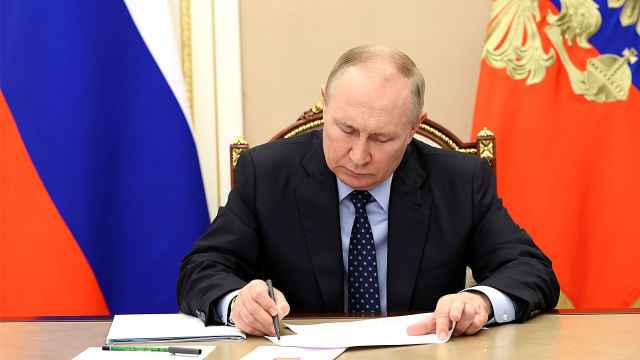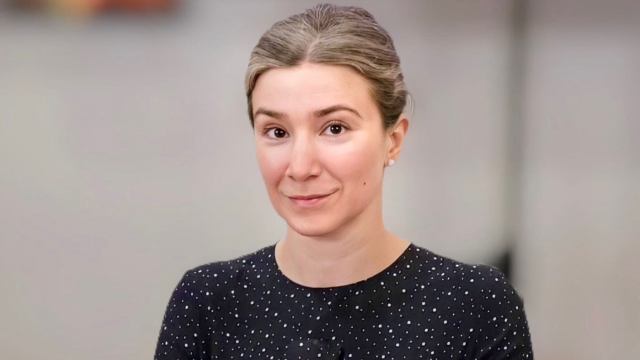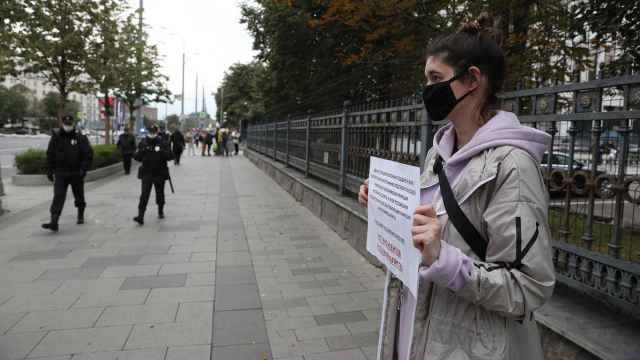Russia has added members of the Pussy Riot art activist collective, a prominent satirist and an independent journalist its registry of “foreign agents” Thursday.
The designations close a year in which Russia labeled nearly every major independent domestic news outlet, as well as dozens of individual journalists and activists, a “foreign agent.”
Founding Pussy Riot member Nadezhda Tolokonnikova and fellow member Nika Nikulshina have been added to the Justice Ministry’s “foreign agents” registry.
Tolokonnikova, 32, was among the Pussy Riot members who were sentenced to prison for their 2012 protest performance in central Moscow's Christ the Savior Cathedral that criticized the Russian Orthodox Church's close ties with President Vladimir Putin.
Anti-Kremlin satirist Viktor Shenderovich; Taisiya Bekbulatova, chief editor of the independent Holod news website; and art collector and former Kremlin advisor Marat Gelman have also been added to the list.
"These people systematically distribute materials to an indefinite circle of persons, while receiving foreign funds," the Justice Ministry's statement said.
The ministry's registry now includes more than 100 entities and individuals, most of which were added in 2021.
Rights advocates denounce the country’s “foreign agents” law, saying it seeks to silence groups and individuals that dissent from state narratives by branding them with a label that carries dark connotations from the Soviet era.
Labeled individuals and entities must submit regular financial reports and detailed lists of income and spending, as well as prominently display a wordy disclaimer on all articles, social media posts and other publications — or else face criminal charges.
But officials defend the law, pointing to what they say are harsher equivalent laws in Western countries.
On Monday, prominent BBC Russian investigative journalist Andrei Zakharov said he left the country two months after being labeled a “foreign agent,” saying he faced “unprecedented surveillance” following his designation.
And Russian courts this week ruled to liquidate the two main structures of Memorial, Russia’s leading human rights group and a key pillar of its civil society, citing repeated violations of the “foreign agent” law.
A Message from The Moscow Times:
Dear readers,
We are facing unprecedented challenges. Russia's Prosecutor General's Office has designated The Moscow Times as an "undesirable" organization, criminalizing our work and putting our staff at risk of prosecution. This follows our earlier unjust labeling as a "foreign agent."
These actions are direct attempts to silence independent journalism in Russia. The authorities claim our work "discredits the decisions of the Russian leadership." We see things differently: we strive to provide accurate, unbiased reporting on Russia.
We, the journalists of The Moscow Times, refuse to be silenced. But to continue our work, we need your help.
Your support, no matter how small, makes a world of difference. If you can, please support us monthly starting from just $2. It's quick to set up, and every contribution makes a significant impact.
By supporting The Moscow Times, you're defending open, independent journalism in the face of repression. Thank you for standing with us.
Remind me later.






